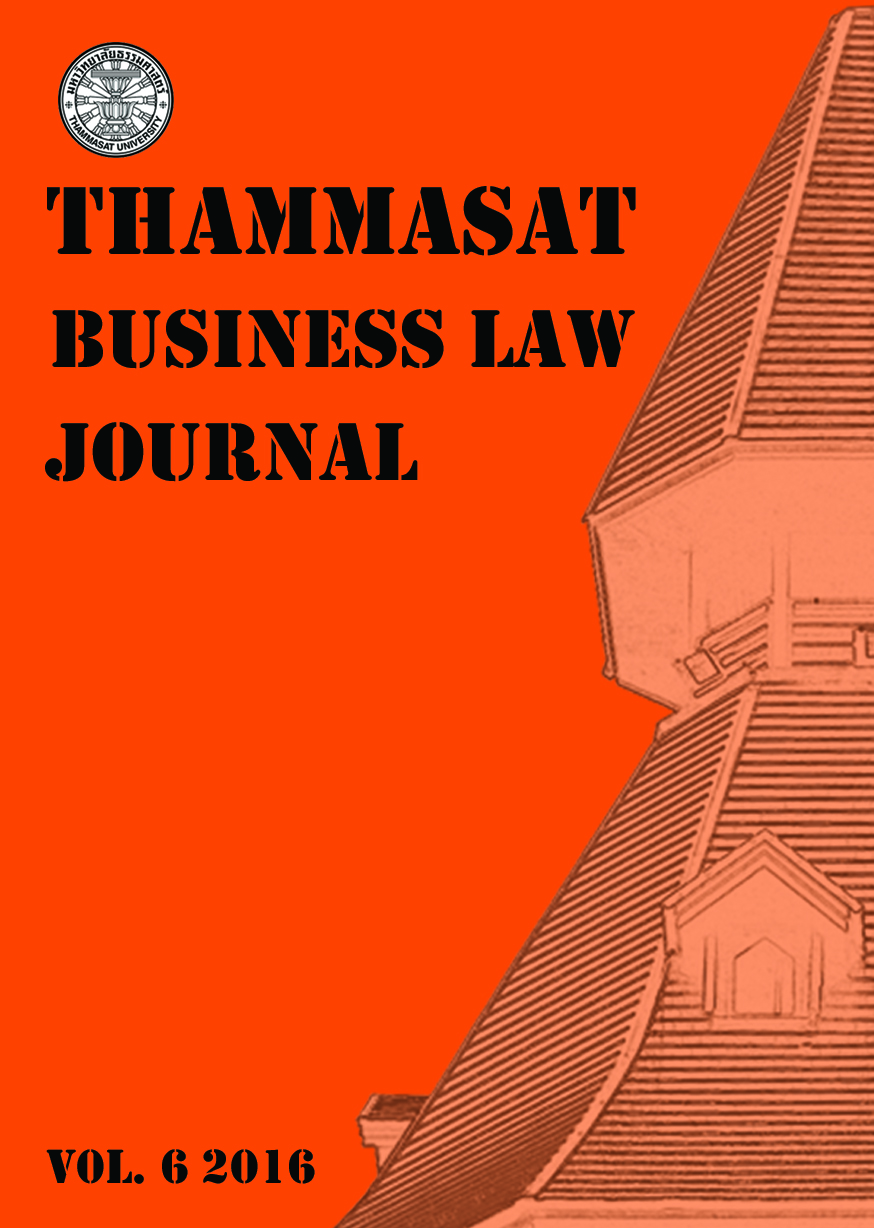EMPLOYMENT INJURIES FOCUSING ON MENTALMENTAL INJURIES
Main Article Content
Abstract
Mental-mental injuries are purely mental injuries resulting from emotional stimulus. In Thailand, the scope of work-related mental injuries can be determined in the first instance by considering relevant provisions of labor law, such as Section 5 of the Worker’s Compensation Act, B.E. 2537 (1994). In it, words such as “injury” and related terms are defined broadly which may be sufficient to include work-related mental injuries, but its precise meanings and scope remain unclear.
There is no provision under Thai labor law for explaining which mental-mental injuries are legally recognized and therefore compensable. Thai worker compensation law lacks clear definition of “mental-mental injury”, nor are exceptions provided or scope defined. No specific legal framework or consistent court precedent exists in Thai labor law for mental-mental injuries as compensable employment injuries. In practice, it is entirely up to authorities to offer definitions, causing uncertainty.
In search of a suitable solution for Thai law, relevant US, UK, and German laws were comparatively reviewed. These legal
___________________________
* This article is summarized and arranged from the thesis “Employment Injuries focusing on Mental-Mental Injuries” Master of laws in Business law (English Program), Faculty of Law Thammasat University, 2015.
** Graduate student of Master of Laws Program in Business law (English Program), Faculty of Law Thammasat University.
from injury” or “work-related sickness”. It should be clear to cover a wide range of mental-mental injuries. There is no single perfect solution. Accordingly, this thesis would like to suggest that a suitable
solution should be a combination of a number of different legal tools. These include establishing the basic principles for authorities’ evaluation and defining specific exceptions and presumptions about mental-mental injury matters and etc.
systems recognize mental-mental injuries principle, clearly defined in court decisions, written law, and prototype rules. This thesis suggests that Thailand should certify and define the boundaries of “suffering
Article Details
References
Bender, 1960.
Atchison, Thomas W. " Workers' Compensation Law: Mind Games: Understanding Mental Injuries Following Recent Changes to The Minnesota Workers' Compensation Act." William Mitchell Law Review 41, (January 1, 2015): 1394-1407.
Bailey, Ashley R. "Stress Is [Not] Part of the Job: Finding the Appropriate Balance between Fairness and Efficiency to Compensate Posttraumatic Stress Disorder under Workers' Compensation Statutes [comments]," Wisconsin Law Review no.3 (2015):507-536.
Inman, James M. "Where Are You Hurt - Kentucky Redefines Workers' Compensation Injury in a Post-Traumatic Stress Disorder World [notes]," Kentucky Law Journal no.3 (2007):465-486.
Diagnostic and Statistical Manual of Mental Disorders, Fifth Edition (DSM-5), American Psychiatric Association.
Elert, Nicole, and Christopher T. Brooks. “German Employment Law : 618 Questions Frequently Asked by Foreigners”. Berlin: De Gruyter, 2014. eBook Collection (EBSCOhost), EBSCOhost (accessed April 28, 2016).
Institute for Work & Health. “Description of the organization of the occupational health and safety system and the delivery of prevention services, Report to the Expert Advisory Panel Occupational Health and Safety Prevention and Enforcement System”. April 15, 2010.
Joint Declaration on Mental Health in The Workplace, Federal Ministry of Labour and Social Affairs, Confederation of German employers’ Associations, German Trade Union Confederation.


